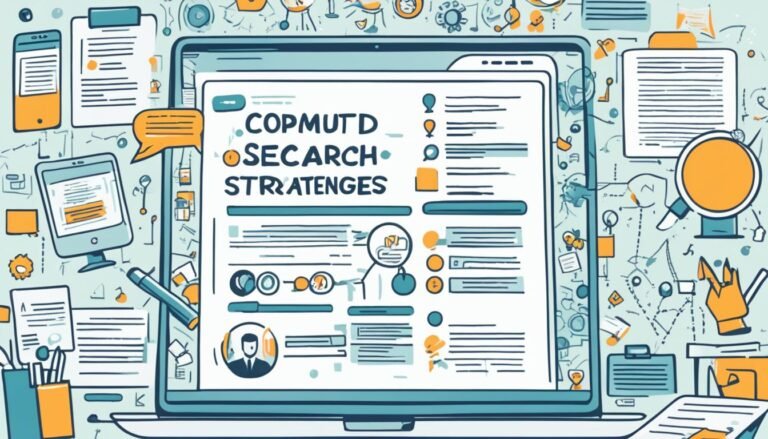Building a Learning Culture in Irish Startups
What if the secret to Ireland’s thriving startup scene isn’t just in new ideas? It’s in building a strong learning culture. As Irish startups shine on the global stage, focusing on employee development and an innovation mindset is key.
Ireland is now a top spot for entrepreneurs, ranked 11th by Forbes in 2019. Dublin boasts over 2,200 startups and is the EU’s fastest-growing economy. With government support, tax perks, and top schools like Trinity College Dublin, innovation and growth thrive here.
Enterprise Ireland has put over €1.5 billion into Irish companies in 20 years. They focus on high-potential startups with funding, export help, and R&D partnerships. Initiatives like New Frontiers and Competitive Start Fund boost tech growth in Ireland.
Companies like Stripe and Intercom show how crucial continuous learning is. They’ve grown globally, with a big part in Dublin. With €820 million raised by Irish startups in 2020, a culture of learning and innovation is key to their success.
Key Takeaways
- Ireland is globally recognized for its supportive startup ecosystem.
- Enterprise Ireland plays a crucial role in funding and mentoring high-potential startups.
- Programs and tax incentives offer significant support to innovative companies.
- Cultivating an innovation mindset and robust employee development are essential for growth.
- Dublin’s tech sector employs over 120,000 people, contributing significantly to the economy.
The Importance of a Learning Culture in Startups
Creating a learning culture in startups is key for staying adaptable and resilient. In Ireland, known for its innovation, startups see learning and growth as key to their success.
Why Learning and Development Matters
Learning and development help startups improve constantly. They keep up with new tech and market changes. Dublin shows how education helps businesses thrive, with over 70 promising startups getting funding each year.
Impact on Innovation and Growth
A learning culture boosts a startup’s innovation and growth. Irish startups gain from the country’s strong education and global tech expertise. With tax credits and venture capital, they can invest in learning more. Programs like Erasmus for Young Entrepreneurs also help share knowledge across borders, pushing innovation further.
Employee Satisfaction and Retention
A learning organization makes employees happier and more likely to stay. Companies like Slack and Buffer offer wellness programs and open work policies. HubSpot focuses on cultural fit to keep employees happy and on board. Airbnb’s “Failure Nights” teach the value of learning from mistakes, creating a supportive environment for growth.
Strategies for Implementing Continuous Improvement
Irish startups can grow and innovate by using specific strategies. These include being agile, making decisions with data, and improving in steps. By using agile methodologies, tracking KPIs, and following Lean Startup practices, startups can keep growing and innovating.
Feedback Loops
Getting feedback is key to improving continuously. Startups should ask customers, employees, and stakeholders for their thoughts often. This helps make decisions based on real data, which is a big part of Lean Startup practices. An IBM study found that top companies give their employees more training than struggling ones. This shows how important feedback and development are.
Agile Methodologies
Agile methodologies help startups deal with the challenges they face. Agile means being flexible and changing quickly. It breaks projects into smaller tasks and uses sprints to finish them. This makes teams more efficient and reduces risks. It also sees mistakes as chances to learn and get better.
KPI Tracking and Analytics
Keeping a close eye on KPIs is another important strategy. By tracking key performance indicators, startups can see how they’re doing and where they can do better. This helps make decisions based on facts, leading to better results. Research shows that focusing on innovation and being inclusive leads to more revenue growth.
| Components | Benefits | Practical Implementation |
|---|---|---|
| Feedback Loops | Enhanced product alignment with market needs | Regular customer surveys, employee feedback sessions |
| Agile Methodologies | Increased flexibility and speed | Sprint planning, daily stand-ups, retrospectives |
| KPI Tracking and Analytics | Data-driven decisions, improved performance | Setting KPIs, analytics tools, performance reviews |
By using agile methodologies, KPI tracking, and Lean Startup practices, Irish startups can improve continuously. These strategies help drive innovation and build a strong, adaptable culture.
Fostering Knowledge Sharing and Collaboration
For Irish startups, building a culture of sharing knowledge and working together is key to growing sustainably. Workshops, mentorship programs, and digital tools help create a space where sharing ideas and innovation happen easily.
Workshops and Training Sessions
Workshops and training are great for sharing knowledge. They give employees a chance to learn new skills and gain valuable insights. Research shows that knowledge is crucial for staying ahead, especially in digital startups.
These workshops turn hidden knowledge into something everyone can use. This makes it easier to share skills throughout the company.
Mentorship Programs
Mentorship programs link experienced pros with new talent, creating a space for learning together. They help share knowledge from experts to newcomers, filling gaps in areas like market knowledge and legal stuff. Schools, incubators, and accelerators play a big role in helping entrepreneurs grow and learn, making mentorship work well.
Leveraging Digital Tools
Digital tools are a must-have for today’s startups. They help Irish startups talk better with each other and with the outside world, manage tasks better, and share knowledge widely. These tools turn hidden knowledge into something everyone can use by sharing, combining, and learning from each other.
In the end, using workshops, mentorship, and digital tools helps startups form a strong community. This way, they can come up with new ideas together. It also builds a culture of always learning and getting better, which is key for doing well over time.
Building a Learning Culture in Irish Startups
Irish startups are now focusing on a learning culture to boost innovation and growth. Cities like Dublin, Cork, and Galway offer a supportive environment for entrepreneurs. This helps them think differently and find new solutions. This shift gives them a competitive edge worldwide.
Creating an Innovation Mindset
Creating an innovation mindset in a startup means valuing creativity and constant improvement. Ireland can learn from Israel’s tech scene, which thrives on new ideas and open talks. With a smart workforce, Ireland’s startups could lead in areas like Agtech, Fintech, and Healthtech.
Encouraging Risk-Taking and Experimentation
Risk-taking and experimentation are key for Irish startups to succeed. Being the only English-speaking EU country makes Ireland perfect for testing new tech. Startups can try out new ideas safely, pushing progress and creativity. Companies like Manna and ApisProtect show how this approach leads to innovation in drone delivery and Agtech.
Learning from Failures
Failure is common in startups, but it teaches valuable lessons. Learning from these failures makes startups stronger and more adaptable. Dublin’s GridBeyond, with its €52 million funding, shows how persistence and learning from mistakes can lead to big wins. “Failing forward” is crucial for startups aiming to make a mark in the fast-changing tech world.
| Key Differentiator | Details |
|---|---|
| Skilled Talent | Highly educated workforce with engineering and multi-lingual sales skills |
| Innovation Environment | High concentration of multinationals and a favorable test bed for new tech |
| Key Sectors | Agtech, Fintech, Healthtech |
| Supportive Culture | Inclusive and accessible startup ecosystem encouraging risk-taking |
Integrating Agile Methodologies for Effective Learning
Using agile methods is key for effective learning strategies in Irish startups. These methods help startups be flexible, quick, and ready to adapt to new challenges. This is vital for growing a business.
Agile ways make sure learning and growth happen step by step, with chances to reflect and adjust often. This is a big part of the lean startup approach. It values being agile and adaptable, inspired by lean manufacturing. The MVP and the Build-Measure-Learn cycle help startups get feedback from users and keep improving.
Here is a look at some main lean startup ideas and actions:
| Lean Startup Principle | Description |
|---|---|
| Validated Learning | Making decisions with data from real feedback |
| Customer Focus | Keeping customers involved and using their feedback |
| Iterative Development | Releasing updates often and making quick changes based on what people say |
| Lean Thinking | Reducing waste and making things efficiently |
| Metric Tracking | Using Cohort Analysis, NPS, Conversion Rates, and CAC to see success |
This agile way matches the fast pace of technology and market changes. It helps startups stay competitive and innovative. By making agile learning part of their culture, Irish startups can keep growing and stay ahead in a fast-changing world.
The Role of Leadership in Promoting a Learning Organization
In the world of Irish startups, leaders play a key role in creating a supportive learning space. They must set a clear direction that encourages ongoing growth. By doing so, they help build a culture that values innovation at all levels.
Setting a Vision for Continuous Learning
Leaders who push for ongoing learning are crucial for an organization’s growth. They guide employees to learn new skills and meet changing market needs. In places like India, research shows that strong leadership is key to starting and carrying out new business ideas.
Leading by Example
Great leaders show the value of lifelong learning by doing it themselves. This inspires their teams to do the same. Studies show that when leaders, like CEOs, get involved in mentoring and learning, it boosts innovation in the company.
This approach makes the workplace safe for trying new things and making mistakes. It encourages team members to be creative without fear.
Providing Resources and Support
Creating a supportive learning space means giving leaders’ support and resources. Leaders must make sure their teams have the tools and training they need. Research shows that having the right resources is key to adding value to a company.
By giving these resources, leaders help their teams keep improving and develop skills for innovation.
In conclusion, leadership is vital in making Irish startups learning organizations. By setting a strong vision, leading by example, and offering support, leaders create an environment where learning and innovation flourish. This leads to long-term success and sustainability.
Source Links
- Ireland may be the place you’ve been looking for to start your new business
- Inside Dublin, Ireland’s Thriving Tech Hub: Startups and Success Stories
- Dublin’s startup ecosystem
- The Art of Nurturing Startup Culture: 7 Key Steps to Success
- 20 Tips for Creating a Learning Culture in the Workplace
- 6 Strategies for Building a Thriving Culture of Innovation
- Build organization culture as a strategic capability
- Unleashing Knowledge Sharing in Emerging Economy Startups: A Multilevel Analysis
- How radical collaboration is transforming food systems in Ireland – Climate-KIC
- Ireland’s work culture
- Startup Universal | Ireland Startup Ecosystem Country Guide
- The Lean Startup Methodology in Ireland – Biz Guru
- What is the lean startup methodology? How to apply it?
- The role of leadership in business model innovation: a case of an entrepreneurial firm from India
- Mentoring Top Leadership Promotes Organizational Innovativeness through Psychological Safety and Is Moderated by Cognitive Adaptability








